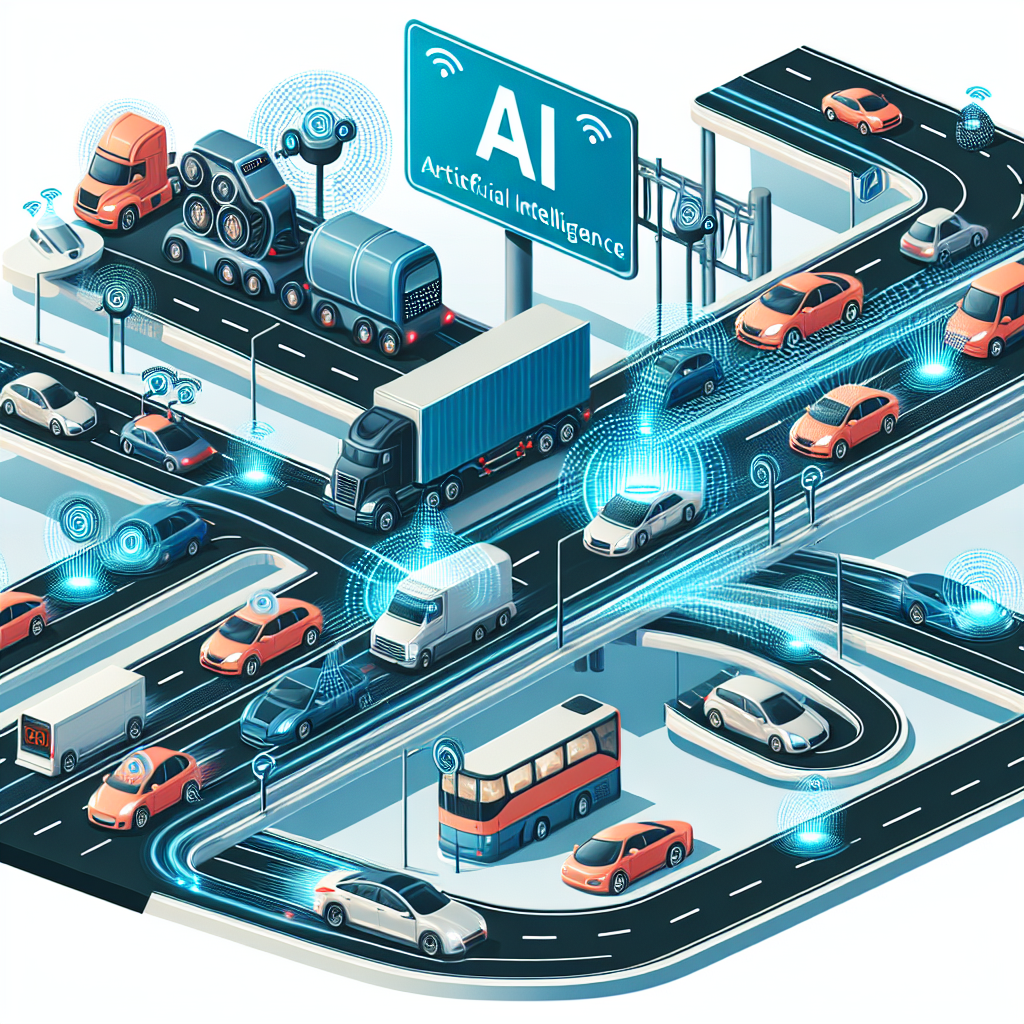The transportation industry plays a critical role in the global economy, facilitating the movement of people and goods from one place to another. With the advancement of technology, artificial intelligence (AI) has become increasingly integrated into various aspects of the transportation industry. From autonomous vehicles to smart traffic management systems, AI is revolutionizing the way we travel. In this article, we will explore the benefits of AI integration in the transportation industry and how it is shaping the future of transportation.
1. Improved Safety
One of the most significant benefits of AI integration in the transportation industry is improved safety. AI-powered systems can help vehicles detect and respond to potential hazards on the road in real-time, reducing the risk of accidents. Autonomous vehicles, for example, use AI algorithms to navigate roads, interpret traffic signals, and avoid collisions. These systems can react faster than human drivers, leading to a decrease in accidents caused by human error.
2. Increased Efficiency
AI integration in transportation also leads to increased efficiency in various aspects of the industry. For example, AI-powered traffic management systems can optimize traffic flow by analyzing real-time data and adjusting traffic signals accordingly. This not only reduces congestion but also decreases travel times for commuters. Additionally, AI algorithms can help logistics companies optimize routes, manage inventory, and schedule deliveries more efficiently, leading to cost savings and improved customer satisfaction.
3. Environmental Benefits
AI integration in transportation can also have positive environmental impacts. Autonomous vehicles and smart traffic management systems can help reduce fuel consumption and emissions by optimizing routes and reducing idling time. This can contribute to a decrease in greenhouse gas emissions and air pollution, leading to a cleaner and more sustainable transportation system. Additionally, AI-powered electric vehicles are becoming more prevalent, further reducing the carbon footprint of the transportation industry.
4. Enhanced Customer Experience
AI integration in transportation can also enhance the overall customer experience. For example, ride-sharing companies use AI algorithms to match riders with drivers based on their preferences and optimize pick-up and drop-off locations. This leads to a more seamless and personalized experience for customers. Additionally, AI-powered chatbots and virtual assistants can provide real-time information and assistance to travelers, improving customer service and satisfaction.
5. Cost Savings
Another benefit of AI integration in transportation is cost savings for companies and consumers. Autonomous vehicles, for example, can operate 24/7 without the need for breaks or rest periods, leading to increased productivity and cost savings for transportation companies. Additionally, AI-powered logistics systems can help companies optimize their supply chain, reduce inventory costs, and minimize delivery times, leading to overall cost savings for businesses and consumers.
6. Improved Infrastructure Planning
AI integration in transportation can also help improve infrastructure planning and development. By analyzing real-time data on traffic patterns, demand, and user behavior, city planners can make more informed decisions about where to invest in infrastructure improvements. This can lead to better-designed roads, public transportation systems, and bike lanes, making cities more accessible and sustainable for residents and visitors.
7. Future Innovations
AI integration in transportation is still in its early stages, and there are many future innovations on the horizon. For example, researchers are working on developing flying taxis and hyperloop systems that use AI algorithms to navigate and control the vehicles. Additionally, AI-powered drones are being used for last-mile delivery and inspection of infrastructure. These innovations have the potential to revolutionize the way we travel and transport goods in the future.
FAQs:
Q: Are autonomous vehicles safe?
A: Autonomous vehicles are equipped with numerous sensors and AI algorithms that help them navigate roads and respond to potential hazards. While accidents involving autonomous vehicles have occurred, studies show that they are generally safer than human-driven vehicles. As the technology improves and regulations are put in place, autonomous vehicles are expected to become even safer.
Q: Will AI integration in transportation lead to job loss?
A: While AI integration in transportation may lead to some job displacement, it is also expected to create new job opportunities in areas such as AI development, data analysis, and maintenance of AI systems. Additionally, AI integration can lead to increased productivity and cost savings for companies, which can lead to overall economic growth and job creation.
Q: How can I benefit from AI integration in transportation as a consumer?
A: As a consumer, you can benefit from AI integration in transportation in various ways. For example, AI-powered ride-sharing apps can provide you with personalized recommendations and optimize your travel experience. Additionally, AI-powered logistics systems can help companies deliver goods to you more efficiently, leading to faster delivery times and cost savings for you as a consumer.
In conclusion, AI integration in the transportation industry offers numerous benefits, including improved safety, increased efficiency, environmental benefits, enhanced customer experience, cost savings, improved infrastructure planning, and future innovations. While there are challenges and concerns associated with AI integration, the potential for positive impact on the transportation industry and society as a whole is significant. As technology continues to advance, AI will play an increasingly important role in shaping the future of transportation.

